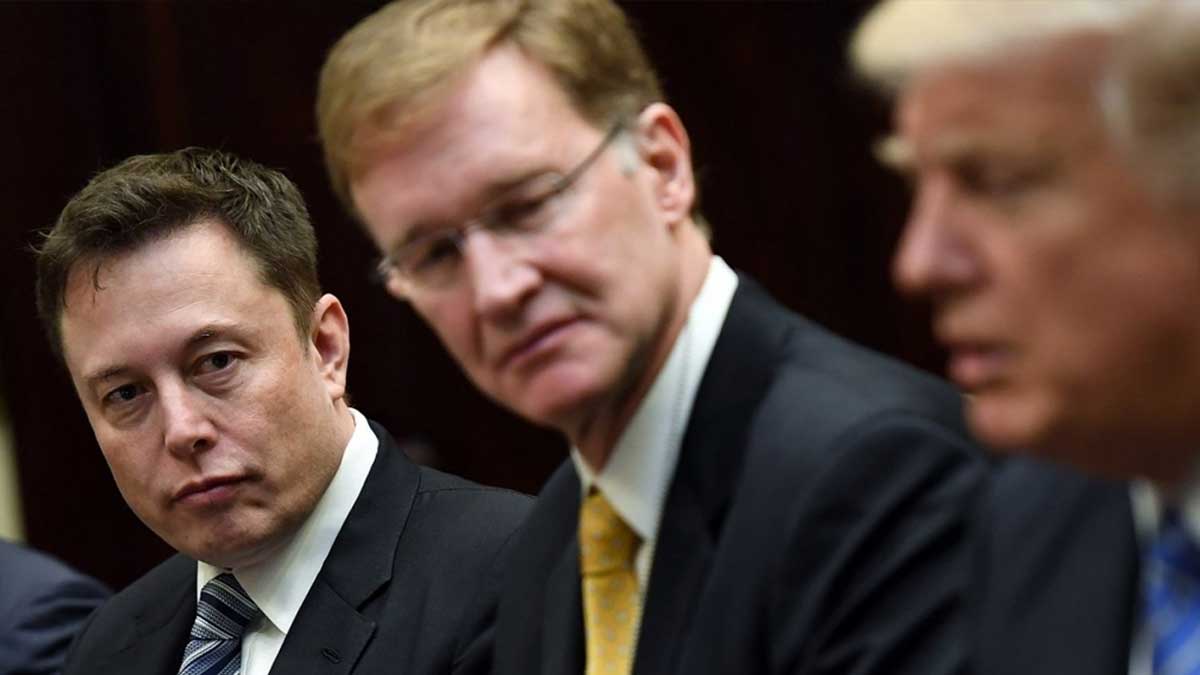- Home
- Billionaires
- Investing Newsletters
- 193CC 1000
- Article Layout 2
- Article Layout 3
- Article Layout 4
- Article Layout 5
- Article Layout 6
- Article Layout 7
- Article Layout 8
- Article Layout 9
- Article Layout 10
- Article Layout 11
- Article Layout 12
- Article Layout 13
- Article Layout 14
- Article Sidebar
- Post Format
- pages
- Archive Layouts
- Post Gallery
- Post Video Background
- Post Review
- Sponsored Post
- Leadership
- Business
- Money
- Small Business
- Innovation
- Shop
Recent Posts
Trump’s Changing Views on EVs and Musk’s Support

Elon Musk, the influential figure in the electric vehicle (EV) sector and CEO of Tesla, has recently extended his endorsement to Donald Trump in the upcoming presidential election. This unexpected alliance between Musk and Trump raises questions, especially given Trump’s historically skeptical views on EVs. Despite Trump’s past criticisms, recent developments suggest that a Trump presidency could still impact Tesla positively, even if he attempts to reverse current EV-friendly policies.
In a June interview with Bloomberg Businessweek, Trump referred to EVs as “wonderful” and praised Musk, calling him “fantastic.” This comment came just before Musk publicly endorsed Trump and revealed plans to contribute $45 million monthly to Trump’s campaign. This shift in Trump’s tone represents a significant reversal from his 2022 remarks, when he suggested that Musk was overly subservient and dismissed Tesla’s value without subsidies, criticizing both Tesla’s self-driving safety issues and SpaceX’s rocket launches.
During his first term, Trump was a vocal critic of EVs, but his recent statements indicate a softer stance. He now claims to be a “big fan” of the technology, a change Musk attributed to his own persuasive abilities, as he mentioned at Tesla’s annual shareholder meeting. Despite this, Trump remains far from being a staunch advocate for the EV industry. He has reportedly indicated plans to eliminate the $7,500 federal tax credit for EV buyers—a proposal he attempted unsuccessfully in 2019—and criticized the Biden Administration’s goals for expanding EV adoption, labeling them as “not doable” and “not sustainable.” Trump has also spread misinformation regarding government subsidies for EV manufacturers.
The potential implications of a Trump presidency for Tesla are mixed. Wedbush analyst Dan Ives warned that a second Trump term could negatively impact the EV industry overall, citing the potential removal of EV subsidies and Trump’s promise to impose a 100% tariff on EVs from Chinese manufacturers. However, Ives noted that such tariffs could benefit Tesla by reducing competition from Chinese companies like BYD and NIO. With BYD’s lower-priced EVs potentially undermining Tesla’s market, the tariffs could give Tesla a competitive edge in the domestic market.
In the second quarter of 2024, electric vehicles represented about 8% of all cars sold in the U.S., with Tesla commanding nearly 50% of the EV market, according to Cox Automotive. Tesla’s market share is significantly higher than that of the next leading EV seller, Ford. Tesla’s growth has been impressive under both Trump and Biden administrations, with its share price soaring from $13 on Election Day 2016 to $253 as of mid-July 2024, and annual vehicle sales increasing from 76,000 in 2016 to 1.8 million last year. Musk’s wealth, bolstered by his stake in Tesla, exceeds $100 billion, and he has diversified interests, including SpaceX and X, formerly known as Twitter. Trump, meanwhile, has his own social media platform, Truth Social, launched after his suspension from major platforms like Twitter and Facebook following the January 6, 2021 Capitol riots.
Musk’s dissatisfaction with President Joe Biden’s administration stems from Biden’s perceived disregard for Tesla despite his pro-EV stance. Musk has criticized Biden for not including Tesla in a 2021 White House summit on EVs, and Democratic donor Jeffrey Skoll attributed this slight to Tesla’s non-union workforce.
Recent Posts
Categories
- 193cc Digital Assets2
- 5G1
- Aerospace & Defense46
- AI37
- Arts3
- Banking & Insurance11
- Big Data3
- Billionaires449
- Boats & Planes1
- Business328
- Careers13
- Cars & Bikes76
- CEO Network1
- CFO Network17
- CHRO Network1
- CIO Network1
- Cloud10
- CMO Network18
- Commercial Real Estate7
- Consultant1
- Consumer Tech180
- CxO1
- Cybersecurity68
- Dining1
- Diversity, Equity & Inclusion4
- Education7
- Energy8
- Enterprise Tech29
- Events11
- Fintech1
- Food & Drink2
- Franchises1
- Freelance1
- Future Of Work2
- Games141
- GIG1
- Healthcare78
- Hollywood & Entertainment186
- Houses1
- Innovation42
- Investing2
- Investing Newsletters4
- Leadership65
- Lifestyle11
- Manufacturing1
- Markets20
- Media193
- Mobile phone1
- Money13
- Personal Finance2
- Policy567
- Real Estate1
- Research6
- Retail1
- Retirement1
- Small Business1
- SportsMoney33
- Style & Beauty1
- Success Income1
- Taxes2
- Travel10
- Uncategorized8
- Vices1
- Watches & Jewelry2
- world's billionaires418
Related Articles
Trump Moves $4B Stake in Truth Social Parent, Stock Drops 6%
Donald Trump recently transferred his 57% stake in Trump Media & Technology...
By 193cc Agency CouncilDecember 20, 2024House Rejects Trump-Backed Funding Bill, Shutdown Looms
The U.S. House of Representatives rejected a new government funding bill on...
By 193cc Agency CouncilDecember 20, 2024Trump Named Time’s Person of the Year for Second Time
On Thursday, Time magazine honored Donald Trump as its “Person of the...
By 193cc Agency CouncilDecember 12, 2024Meta Donates $1 Million to Trump’s Inaugural Fund
Meta, the parent company of Facebook and Instagram, has confirmed a $1...
By 193cc Agency CouncilDecember 12, 2024















Leave a comment